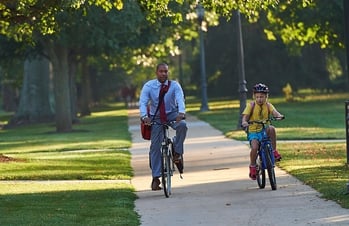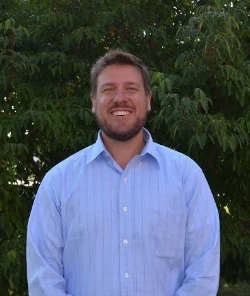 Have you ever been in a conversation about sustainability or environmental stewardship and immediately felt judged by those around you? Perhaps you perceived judgment from others, even if nothing was said. Think about how that was a turn-off. Did you feel defensive? Did you feel ready to cooperate with a group in which you felt judged?
Have you ever been in a conversation about sustainability or environmental stewardship and immediately felt judged by those around you? Perhaps you perceived judgment from others, even if nothing was said. Think about how that was a turn-off. Did you feel defensive? Did you feel ready to cooperate with a group in which you felt judged?
Imagine this scenario: I was about to attend a meeting about water bottle policy. I usually have my trusted water bottle in hand, but on this afternoon I wanted some caffeine. I grabbed a Coke Zero and arrived at the meeting just as the group was considering abolishing all disposable plastic water bottles from campus. Yes, I was that guy. I had my disposable soda bottle with its high-fructose corn syrup and Splenda additive clutched in my hand as this decision was going down.
None of us is perfect with respect to being environmentally friendly. What I teach kids is that we, all of us, are grappling with issues of sustainability. What is important is that we understand the challenges and then adjust our behavior to try to meet those challenges. That is the crux - adjusting our behavior to meet environmental challenges.
I am the Director of Sustainability at Westtown School. I am not eco-perfect, however I do try to live intentionally. I struggle with the same issues that all of us do. I drive a car that consumes gasoline and that needs oil changes. However, I do inflate my tires to get the best gas milage I can, I have been known to bike to work or around campus, and I carpool when possible. This is me, like all of us, tackling what it means to live sustainably. I own a home that is nearly 100 years old. It is taking time, but my family and I are doing what we can to maximize its efficiency that (a) saves us money and (b) stays within a budget we can afford. We do not yet have solar power, but we do buy our energy from renewable resources (RECs).
To be aiming continually for “perfect” can undo motivation. Here is a dirty little secret (pun intended): There is no perfect. There is no perfect way to sustainable living. However, there are multiple degrees of better. The key is simply to try. Try making individual and small group efforts to decrease your carbon footprint today. If this is in the forefront of your mind, each day your efforts will create a behavior that can be a model for others. My challenge is to model behavior for children that will make an impression. I don’t just talk about recycling, I do it. In my classroom I model it and talk about the importance of reusing and recycling. And then I have students who encourage each other to model better eco-behaviors.
Yes, sometimes my students catch me when I forget to turn out the light. Sometimes they ask that we turn the classroom lights off during a sunny day. Sometimes they are more knowledgeable about what can be recycled than I am. Giving them ownership and empowerment is not only bettering our world right now, but also prepares them to continue to be stewards of the Earth in the future.
Let me state the obvious: we are all students and we are all in this together. Environmental stewardship is a moral issue and is one with which we all grapple. To combat the climate changes that are already occurring, we will all have to cooperate - on a massive scale. We must be motivated to hand a better world off to our children and their children.
So let’s not spend so much time judging each other, but rather encouraging each other as we each make steps toward a better and more sustainable tomorrow.



